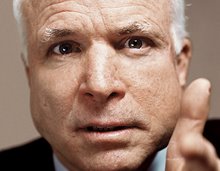This is a classic loaded question, but the answer I like best comes from Arthur Goldberg, a Supreme Court Associate Justice (who, incidentally, wrote a concurring opinion in Griswold v. Connecticut, the 1965 case that overturned a state law prohibiting the use of contraceptives):
“Teaching of religion”: bad.
“Teaching about religion”: good.
Evangelical pundit Chuck Colson puts it similarly:
What you can do is introduce the Bible so that people are aware of its impact on people and in history and then let God speak through it as he will.
In his recent cover story in Time (which contains the above quotes), David Van Biema offers a longer answer:
Simply put, the Bible is the most influential book ever written. Not only is the Bible the best-selling book of all time, it is the best-selling book of the year every year. In a 1992 survey of English teachers to determine the top-10 required “book-length works” in high school English classes, plays by Shakespeare occupied three spots and the Bible none. And yet, let’s compare the two: Beauty of language: Shakespeare, by a nose. Depth of subject matter: toss-up. Breadth of subject matter: the Bible. Numbers published, translated etc: Bible. Number of people martyred for: Bible. Number of wars attributed to: Bible. Solace and hope provided to billions: you guessed it. And Shakespeare would almost surely have agreed. According to one estimate, he alludes to Scripture some 1,300 times. As for the rest of literature, when your seventh-grader reads The Old Man and the Sea, a teacher could tick off the references to Christ’s Passion—the bleeding of the old man’s palms, his stumbles while carrying his mast over his shoulder, his hat cutting his head—but wouldn’t the thrill of recognition have been more satisfying on their/own?
If literature doesn’t interest you, you also need the Bible to make sense of the ideas and rhetoric that have helped drive U.S. history. “The shining city on the hill”? That’s Puritan leader John Winthrop quoting Matthew to describe his settlement’s convenantal standing with God. In his Second Inaugural Address, Abraham Lincoln noted sadly that both sides in the Civil War “read the same Bible” to bolster their opposing claims. When Martin Luther King Jr. talked of “Justice rolling down like waters” in his “I Have a Dream” speech, he was consciously enlisting the Old Testament prophet Amos, who first spoke those words. The Bible provided the argot—and theological underpinnings—of women’s suffrage and prison-reform movements.


